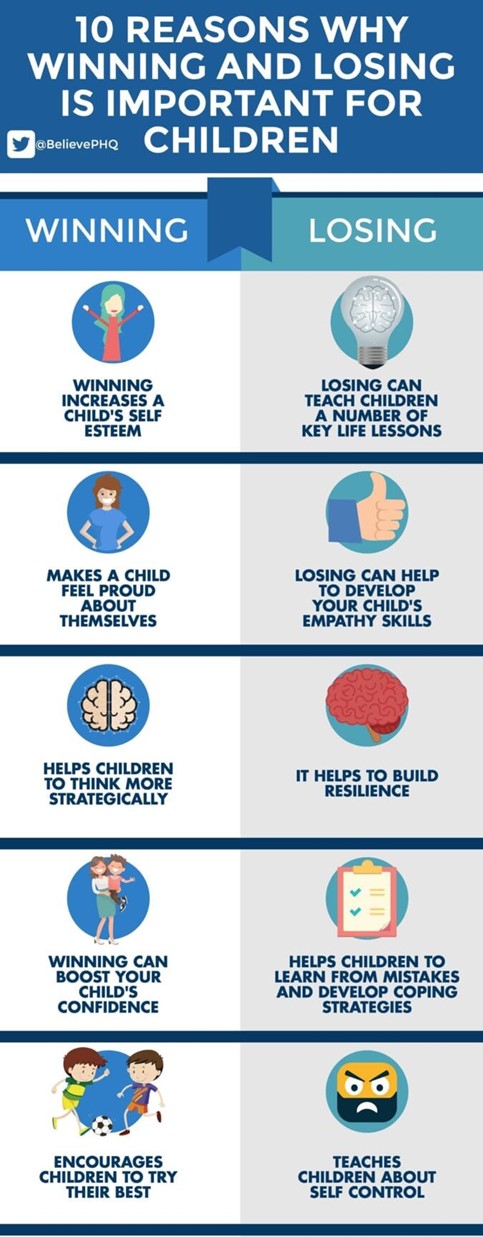10 reasons why winning and losing are important for children

Winning and losing. Someone has to be a winner, and someone has to be a loser. It can be the end of the world for some kids, but for many the focus on an outcome can also discourage them from sport all together. So, how can we change a ‘winning at all cost’ perspective in children and also in parents?
It’s a tricky dilemma that many parents face when they’re trying to be supportive, but also want their children to be the best. After all, there’s a lot of time, effort and money put into sport by many families.
The approach to winning doesn’t need to be aggressive. It’s important to understand that even if children aren’t winning; they can still enjoy what they’re doing and learn from the experience. It’s not necessary for children to always win because they will never experience what it feels like to lose. This takes away crucial life lessons, empathy skills and development for a child.
Let’s be clear, winning is not bad. However, there is a crucial difference between winning and winning at all costs. Winning brings many benefits for children’s development such as an increase in self-esteem, confidence boost and strategic thinking skills. With winning at all costs however the experience that children have in sport is often inhibited by well-intentioned adults and it becomes very unenjoyable.
Both winning and losing teaches a child many lessons which are important for growth and development. Part of this, as a parent, is supporting your child through the good and bad times. Cracking the perspective of ‘win at all costs’ is challenging, but once you understand why a child must experience both winning and losing, this perspective can change, and the focus becomes on nurturing a child’s social development.
The image below can assist in changing this perspective to understanding your child’s development through sport.

Source: BelievePerform Facebook, 2019





